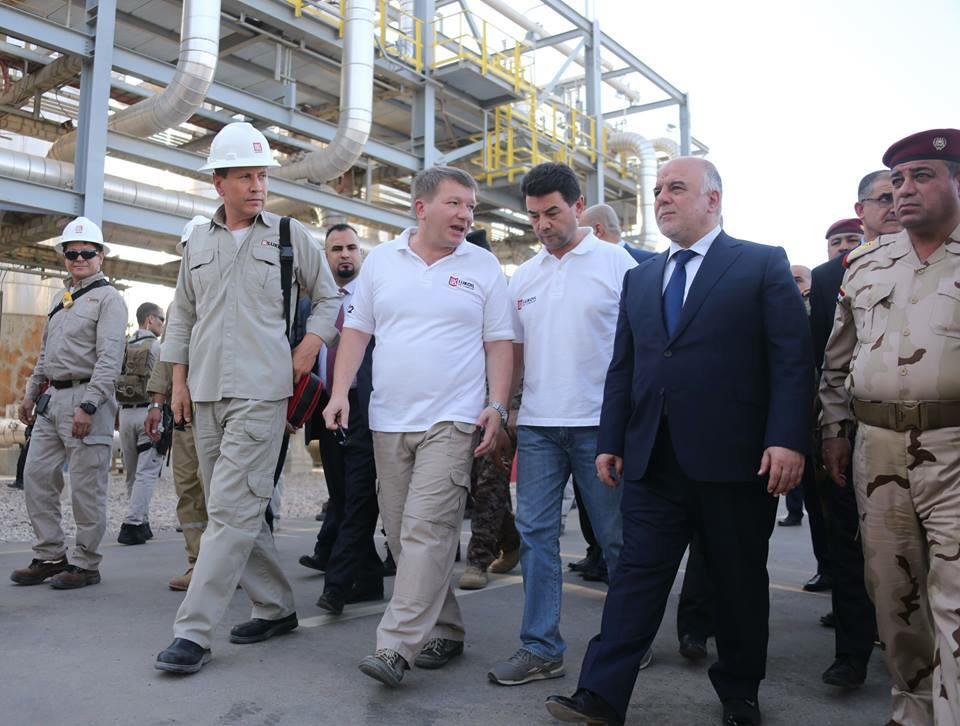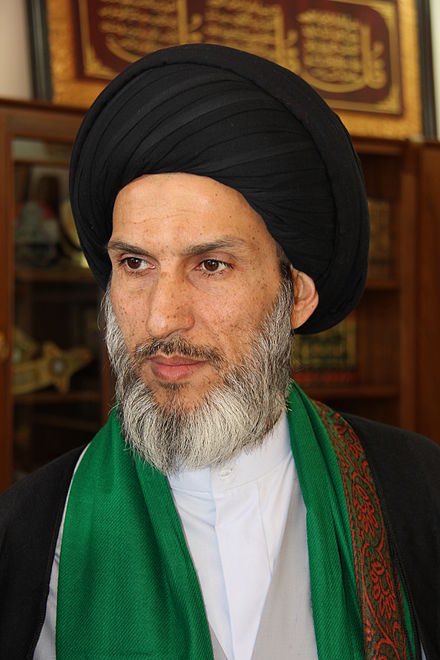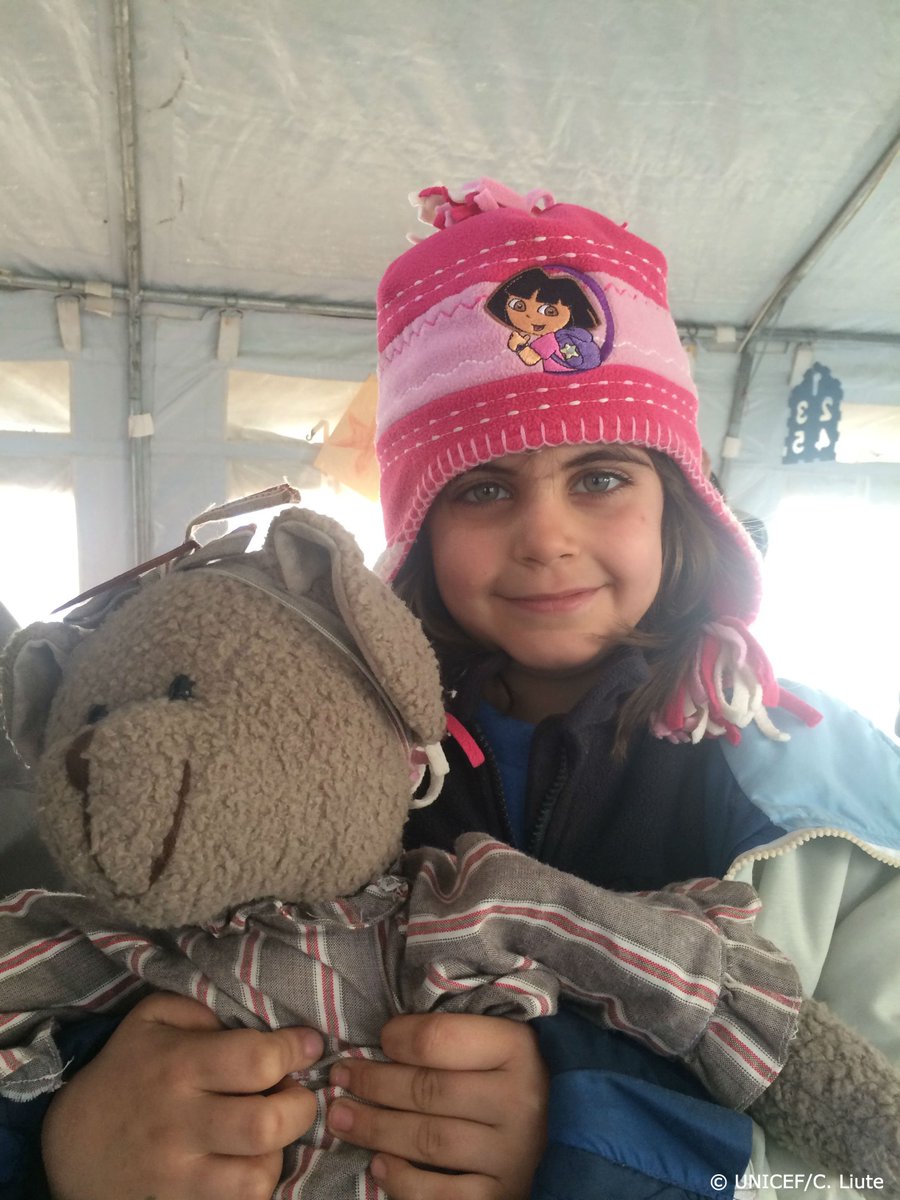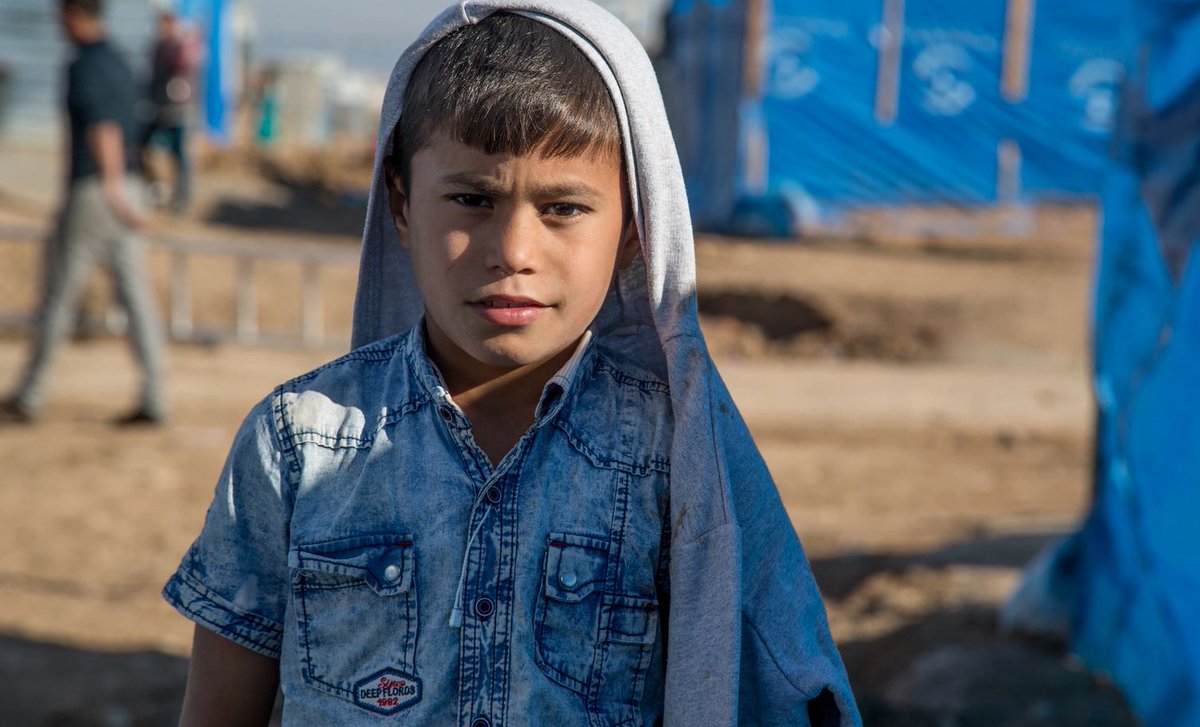Starting with terminology.
One definition of "distraction" would be "a thing that prevents someone from giving full attention to something else." That's the definition we're interested in today.
From December 31, 2015's "Those never-ending victory laps:"
I guess every day is going to be about declaring and celebrating the liberation of Ramadi -- since it was first claimed on Monday and until the day finally comes that it is liberated.
Point of fact, it's still not liberated.
But every day, the limited amount of time the world press spends on Iraq is taken up by tales of Ramadi's liberation.
And so much more gets ignored.
For example?
IRAQI SPRING MC reports counter-terrorism forces in Diyala shot dead a female civilian in front of civilians and Iraqi troops.
Or how about a new flashpoint developing?
IRAQI SPRING MC notes troops being sent to Basra. This comes as NATIONAL IRAQI NEWS AGENCY notes MP Abd al-Salam al-Maliki is calling for the declaration of a state of emergency in Basra arguing the situation there is turning into a crisis.
But by all means, let's all waste another day declaring Ramadi liberated (when it's not).
That's how the year ended -- and with no western press coverage of Basra, to be very clear.
Nine days later?
Sinan Salaheddin (AP) reports, "Fear has become part of daily life amid a surge of violence in Basra, where rampant crime, kidnappings and extortion have become commonplace. Marauding Shiite militiamen drive around in cars with tinted windows and without plates, while local clans wage bloody feuds."
Basra's struggling and, in part, that's said to be because Iraqi forces are being deployed elsewhere in Iraq.
Such as?
Ramadi.
See the Iraqi forces are like the western press -- they apparently are small in number and can only focus on one thing at a time.
How does Basra fall off the radar?
Or has everyone forgotten this photo op?
PM Al-Abadi visits West Qurna 2 in Basra and adopts new measures to enhance security for international oil companies
From the August 22, 2015 snapshot, "Iraq Times reports the reaction to citizens in Basra which was to protest Haider's visit. The activists noted that he traveled all the way to Basra to reassure Big Oil but he did not meet with a single local protester to address the concerns that have had them pouring into the streets for the last weeks. The report notes that the British and US Ambassadors to Iraq had lobbied Haider to visit Basra to reassure Big Oil. As Iraq Times also notes, just north of Basra is where a protester -- protesting against Big Oil -- was shot dead by security forces working for yet another foreign oil company in Iraq."
And the protests? They continue in Basra. ALSUMARIA reports Friday saw continued protests there against the government's corruption.
Yes, the western press should have been paying attention to Basra last year.
So much gets ignored.
Including the lack of success in Barack Obama's never-ending bombing of Iraq. Today, the US Defense Dept announced:
Strikes in Iraq
Coalition forces used rocket artillery, fighter, bomber, and
remotely piloted aircraft to conduct 22 strikes in Iraq, coordinated
with and in support of the Iraqi government:
-- Near Haditha, a strike struck an ISIL tactical unit and destroyed an ISIL heavy machine gun and four ISIL fighting positions.
-- Near Mosul, four strikes struck
two separate ISIL tactical units and destroyed three ISIL fighting
positions, three ISIL weapon caches and three ISIL assembly areas.
-- Near Ramadi, six strikes struck
a large ISIL tactical unit, denied ISIL access to terrain, and
destroyed 21 ISIL fighting positions, two ISIL sniper positions, two
ISIL recoilless rifles, an ISIL vehicle bomb facility, and two ISIL
weapon caches.
-- Near Sinjar, a strike struck two separate ISIL fighting positions and suppressed an ISIL light machine gun.
-- Near Sultan Abdallah, a strike destroyed an ISIL-used culvert and an ISIL fighting position.
Task force officials define a
strike as one or more kinetic events that occur in roughly the same
geographic location to produce a single, sometimes cumulative, effect.
Therefore, officials explained, a single aircraft delivering a single
weapon against a lone ISIL vehicle is a strike, but so is multiple
aircraft delivering dozens of weapons against buildings, vehicles and
weapon systems in a compound, for example, having the cumulative effect
of making those targets harder or impossible for ISIL to use.
Accordingly, officials said, they do not report the number or type of
aircraft employed in a strike, the number of munitions dropped in each
strike, or the number of individual munition impact points against a
target.
Jack A. Smith (GLOBAL RESEARCH) goes where the western press fears to tread:
• IN IRAQ, WASHINGTON’S DISASTROUS WAR has lasted
nearly 13 years from March 2003 with the exception of two and a half
years until returning in August 2014 to fight against the Islamic State
(IS) — itself a product of the first war. President Obama propelled the
second intervention soon after IS captured Mosul, Iraq’s second largest
city, in June 2014. Late last month, after losing much ground, Iraqi
forces backed by American air power recaptured the key city of Ramadi,
destroying a large portion of the city in the process. The battle to
recapture Mosul may take place this year.
However, many sources in and out of Congress argue that only a
significant ground war will ultimately defeat the Islamic State in both
Iraq and Syria. This could take many years. Aside from 3,500 U.S.
military “trainers and advisers” in Iraq, President Obama is reluctant
to engage in a ground campaign in either country, given the Pentagon’s
difficulties in actually winning winning a major war in the Middle East.
If political pressure doesn’t oblige him to deploy a large number of
ground troops against IS this year, there is a likelihood his successor
may do so in 2017. Regardless, the Iraq war will become more intense in
2016.There are several other important problems regarding Iraq, but two stand out.
(1) The Islamic State is a militant Sunni “caliphate” based on Islamic fundamentalist Wahhabi doctrine mainly propagated by the Kingdom of Saudi Arabia. The IS evidently considers its main enemy to be the Shia branch of Islam, which departed from the Sunni version in the 7th century. Virtually all of the many Sunni jihadist groups follow a form of fundamentalist Wahhabism or the nearly identical Salafism, and most condemn adherents of Shia Islam. The IS “state” occupies large portions of two Shia-governed countries, Iraq and Syria. Sunni Arabs in Iraq — most of whom do not share fundamentalist views — constitute 15 to 20% of the Iraqi population. But many oppose the Shia controlled Baghdad government. Unless a substantial number of these Sunnis turn strongly against the IS, defeating it will be more difficult.
Iraq continues to splinter and fall apart.
Though the Shia and Sunni divide has garnered the most attention in recent months, there's also the reality that the Kurds, as Smith notes above, seek independence.
The Kurdish Regional Government is in northern Iraq and has been semi-autonomous for years. The Kurds would like full autonomy.
The Kurds remain the largest ethnic group in the world without a homeland.
Kurds in Syria and Turkey feel suppressed and both countries have governments that fear an independent Kurdistan in Iraq would increase demands for independence for Kurds in both Syria and Turkey.
Hannah Lynch (RUDAW) wonders if this is the year the KRG sees full independence and notes:
In the summer of 2014 when ISIS took over large swathes of Iraq’s territory, Barzani asked the Kurdish parliament to set a date for an independence referendum, saying that the Kurds no longer wanted to be part of Iraq’s troubles.
"There might be some negative consequences arising with the declaration of independence in the beginning. We need to be patient because in the end it is worth it, and we can provide a better tomorrow for our people," says Ayub Hassan, a goldsmith in downtown Erbil.
From reality, to fantasy. Iraq is not just a corrupt country, it is regularly found in the top ten of most corrupt countries in the world. On its most recent corruption index, Transparency International ranked Iraq the 170th most corrupt country in the world out of 175 countries.
Anyone remember the protests of 2015?
Let's drop back to the October 5th snapshot:
Haider al-Abadi was installed as the new prime minister in the fall of 2014 in an attempt to reset the clock and pull Iraq back from the brink.
During his year and counting as prime minister, he's accomplished very little but flapped his gums a great deal.
For example, protests started (re-started) months ago.
The spark was the lack of electricity in 100-plus degree days.
Ghaith Abdul-Ahad (Guardian) reports:
More than a decade after the US invasion – and more than $40bn (£26bn) of investment later – Iraqis must still make do with limited electricity. In a country with one of the world’s largest oil reserves, this is a matter of great exasperation for locals.
“People here get a few hours of electricity every day, so when the current comes there is a huge demand: everyone plugs in their fridges and air conditioners, the old network is overloaded and transformers fry and cables melt,” said Faris. “We work three shifts, 24 hours a day, trying to patch up the old network and we can’t keep up.”
When summer temperatures peak above 50C (122F), it’s a matter of life and death – a far more emotive issue than Isis and the sectarian divide. This summer, as temperatures surged and tempers frayed, thousands of people staged a series of protests, pressing into city centre squares to denounce the corruption that riddles the system.
All these months later, all these grand pronouncements from Haider later, and the electricity issue is still not addressed.
But Haider did announce, over the weekend, that he'd accomplished something to meet the demands of the people.
Sunday, AFP reported that Haider al-Abadi, prime minister of Iraq, declared that opening the Green Zone to the public is part of his fulfilling his promise to the Iraqi people.
Strange, I don't require any signs carried by the protesters in recent months that called for opening the Green Zone.
And, of course, it's not really that open. As AFP noted, "The measure offers limited access to the vast area, with most streets still requiring a special badge [. . .]"
Haider never met the demands of the protesters. And the corruption continues.
But do nothing Haider al-Abadi spoke today. PRESS TV notes:
The comments came following a criticism by Iraq’s senior Shia cleric Grand Ayatollah Ali al-Sistani, who urged the Iraqi government to reform the current administration and take more serious measures against graft.
Covering the speech, ALSUMARIA notes that he gave a similar anti-corruption speech on September 23, 2015 but that, back then, he likened corruption to terrorism.
Haider al-Abadi's empty words have been useless.Let's move to rumors.
US helicopters are taking part in attacks in Kirkuk.
ALSUMARIA reports that this rumor is being denied by US Ambassador to Iraq Stuart Jones.
And did a US drone crash in Iraq? Yes, RUSSIA TODAY reports, "Washington has confirmed that one of its Predator drones deployed in a mission against Islamic State terrorists crashed in Iraq. However, the military denied ISIS militants’ claims that the jihadist group shot the drone down." Lolita C. Baldor (AP) adds, "U.S. Air Forces Central Command says the military lost control of the drone, but the specific cause of its crash is being investigated." And Phillip Swarts (AIR FORCE TIMES) observes, "In the last eight months of 2015, Air Combat Command reported the loss of at least three RPA's -- two in the Middle East and one in Africa."
But what about what happened in Mosul?
ALSUMARIA notes Turkey's President Recep Tayyip Erodgen is insisting that Turkish troops defended Camp Ba'shiqah near Mosul from the Islamic State.
But REUTERS notes, "Iraq's joint operations command denied on Saturday that Turkish forces based in northern Iraq had been attacked by Islamic State or had clashed with the militants, refuting claims by Turkish President Tayyip Erdogan."
On that one, it's still unclear what is just rumor and what is fact.
What about those false US rumors about the Iraq War having ended? Michelle Tan (ARMY TIMES) reported Friday on new deployments, "About 1,300 soldiers will deploy to Iraq this spring to support Operation Inherent Resolve. The other 500 soldiers will deploy to Afghanistan for Operation Freedom’s Sentinel."
So, no, Barack did not end the Iraq War. Or close Guantanamo . . . Or . . .
We'll note this Tweet:
The #Iraqi Shia cleric al-Sarkhi al-Hasani: "Shias clerics have forgotten about the executions of Sunnies in #Iraq"
Indeed.
In some of today's violence, ALSUMARIA reports a south Baghdad bombing left five people (including three children) injured, and 1 corpse was discovered dumped in Baghdad (shot dead).
Turning to England, Jonathan Owen (INDEPENDENT) reports:
Dozens of cases in which British soldiers are accused of unlawfully killing Iraqi civilians have already been referred to prosecutors, The Independent can reveal, with more than 50 deaths set to be examined.
The Iraq Historic Allegations Team (Ihat) has sought advice from the Service Prosecuting Authority (SPA) on unlawful death cases involving 35 alleged killings, and 36 cases of alleged abuse and mistreatment, it can be disclosed.
This has been a story there for over a week but until now there were many allegations being made to the press. These are still allegations but they've now been turned over to legal prosecutors. Lexi Finnigan (TELEGRAPH OF LONDON) adds:
On Friday night MPs and forces chiefs labelled the move to contact 280 soldiers a “despicable witch-hunt”.
Some veterans have even been handed the letters personally and quizzed on their doorsteps by taxpayer-funded detectives.
iraq
rudaw
the independent of london
jonathan owen
the telegraph of london
press tv
alsumaria
national iraqi news agency
associated press
lolita c. baldor
army times
michelle tan
 Haider Al-Abadi
Haider Al-Abadi









 Saudi Guardians
Saudi Guardians 


 UNAMI
UNAMI